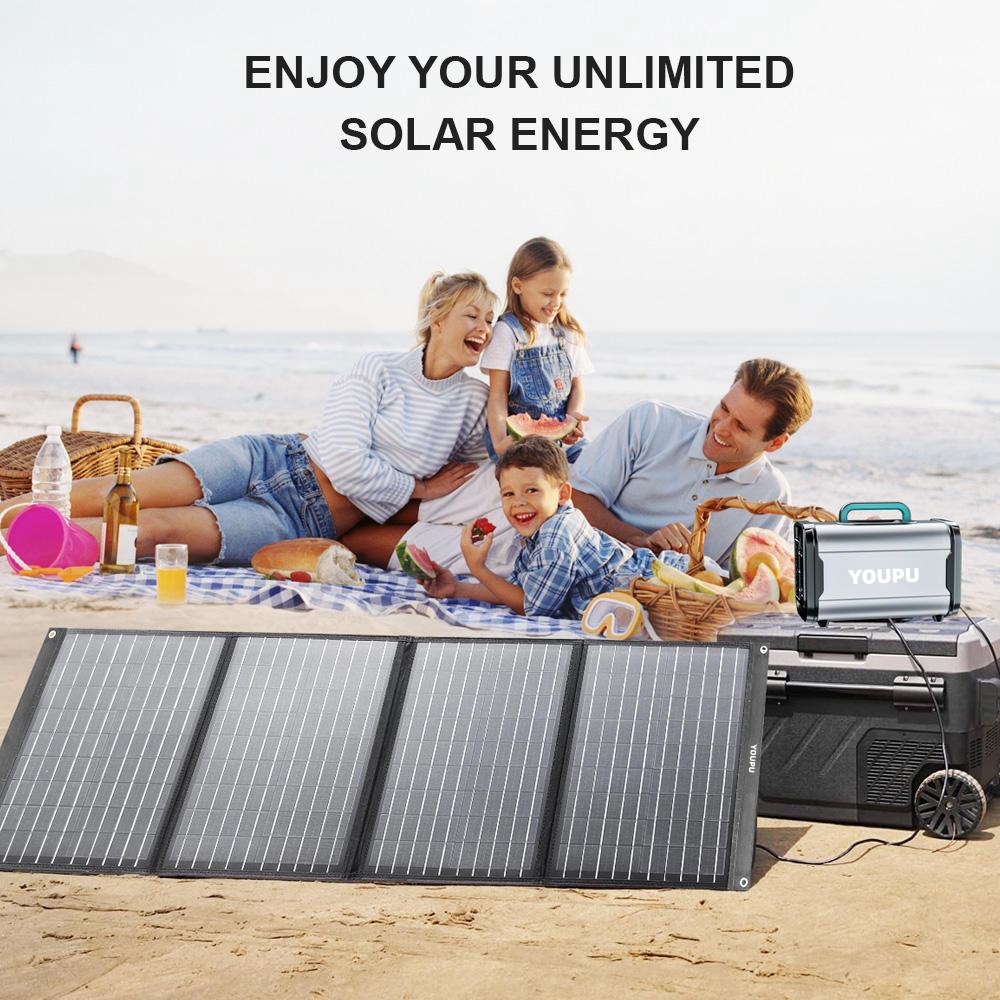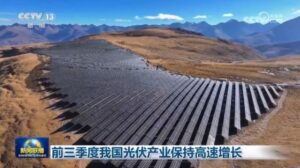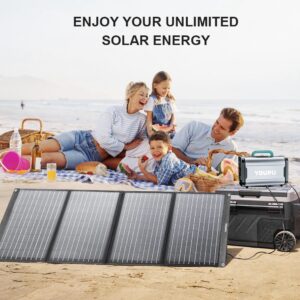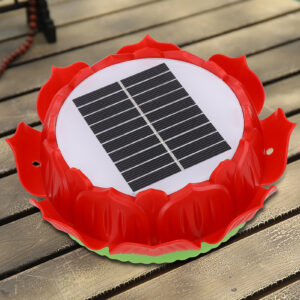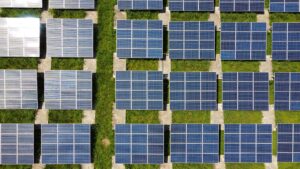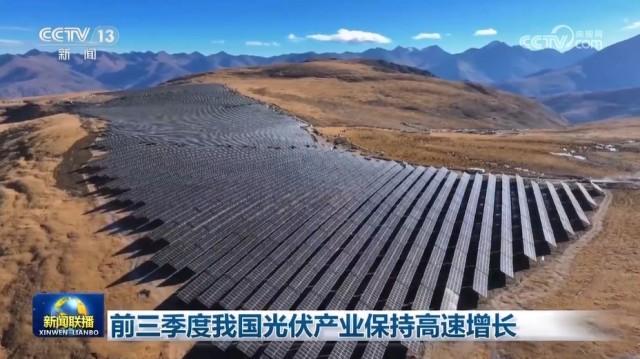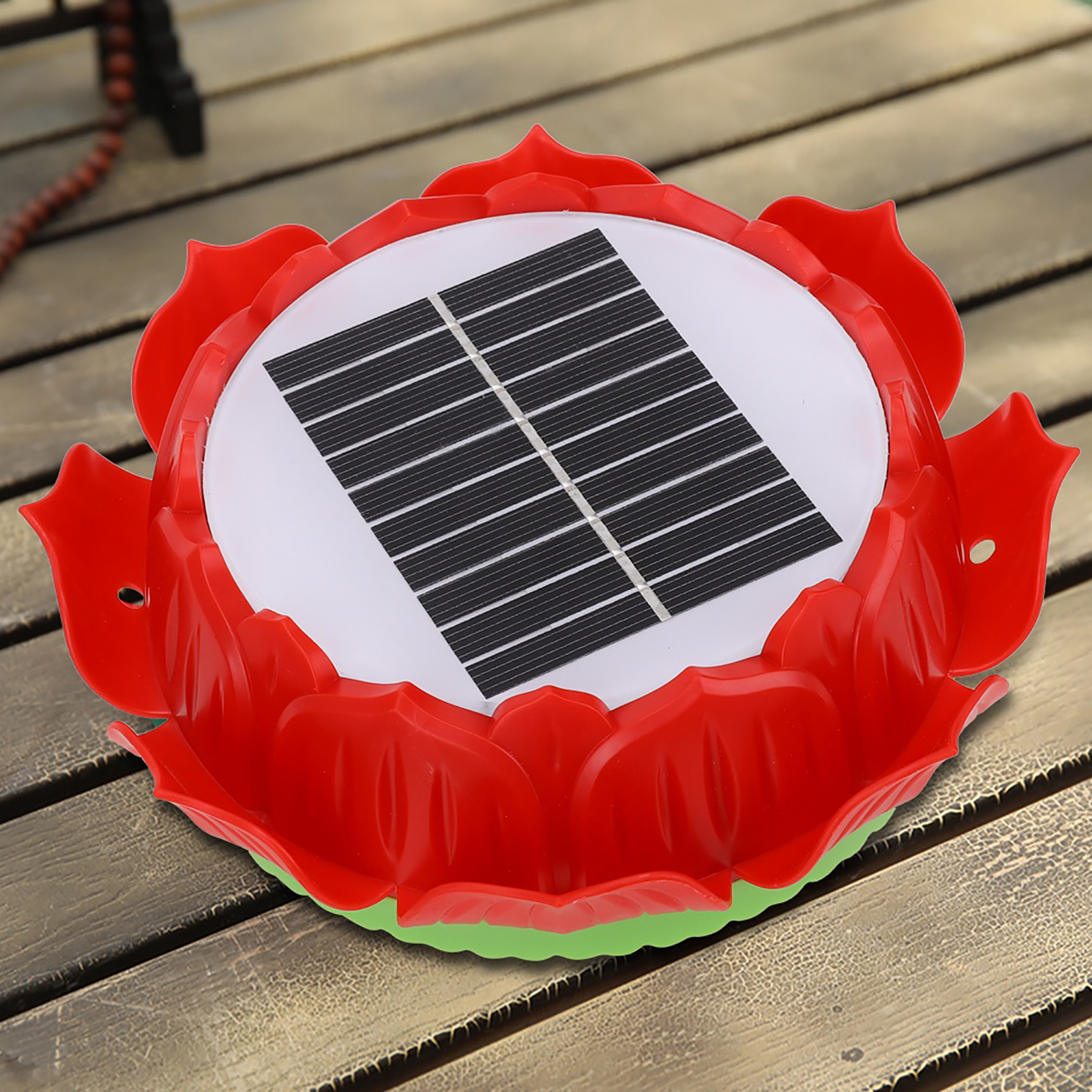As the COVID-19 comes to an end, more and more Chinese people are stepping out of their homes to experience a carefree life outdoors in the first half of 2023. When going on an outdoor trip, besides bringing a tent, sleeping bag, moisture-proof pad, cookware, and folding table and chairs, a suitable outdoor power source is also essential. However, with so many options available in the market, how should we choose the right one for our needs? More and more people are choosing foldable solar panels.
As the COVID-19 comes to an end, more and more Chinese people are stepping out of their homes to experience a carefree life outdoors in the first half of 2023. When going on an outdoor trip, besides bringing a tent, sleeping bag, moisture-proof pad, cookware, and folding table and chairs, a suitable outdoor power source is also essential. However, with so many options available in the market, how should we choose the right one for our needs? More and more people are choosing foldable solar panels.
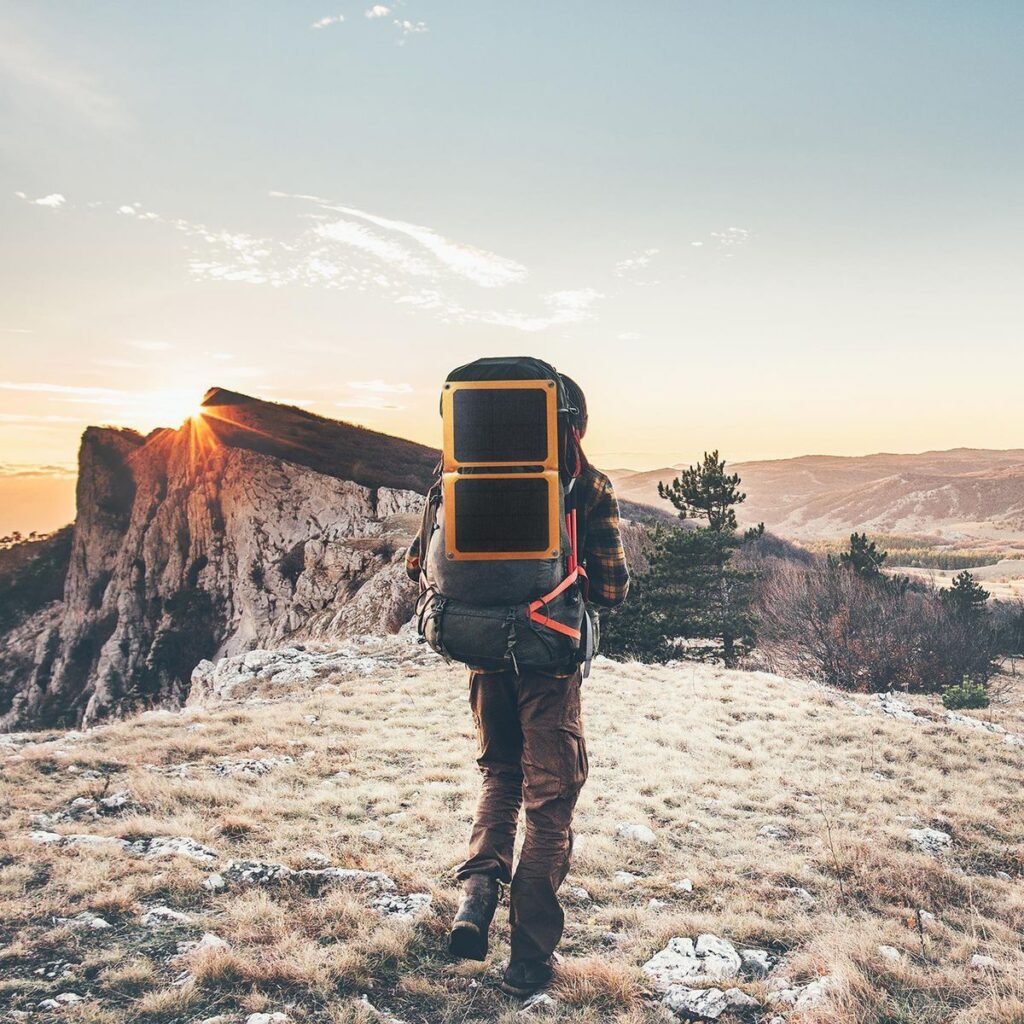
A foldable solar panel can be a valuable addition to your camping gear, especially if you need a reliable power source for charging electronic devices like smartphones, cameras, or GPS devices while in the outdoors. Here are some considerations and benefits of using a foldable solar panel:
-
Sustainability: Solar panels are an eco-friendly way to generate power. They harness energy from the sun, a renewable source, reducing the need for disposable batteries or generators.
-
Convenience: Foldable solar panels are lightweight and portable, making them easy to carry and set up at your campsite. They are designed to be user-friendly and can be positioned to capture the maximum amount of sunlight.
-
Independence: With a solar panel, you’re less reliant on traditional power sources, which can be limited or unavailable in remote camping locations. This can enhance your self-sufficiency during your trip.
-
Recharge Devices: Solar panels are excellent for recharging small electronic devices like smartphones, cameras, GPS devices, or power banks. This ensures that you have access to communication and navigation tools when needed.
-
Emergency Power: In case of an emergency, having a solar panel can be a lifesaver. It provides a consistent source of power for communication and lighting.
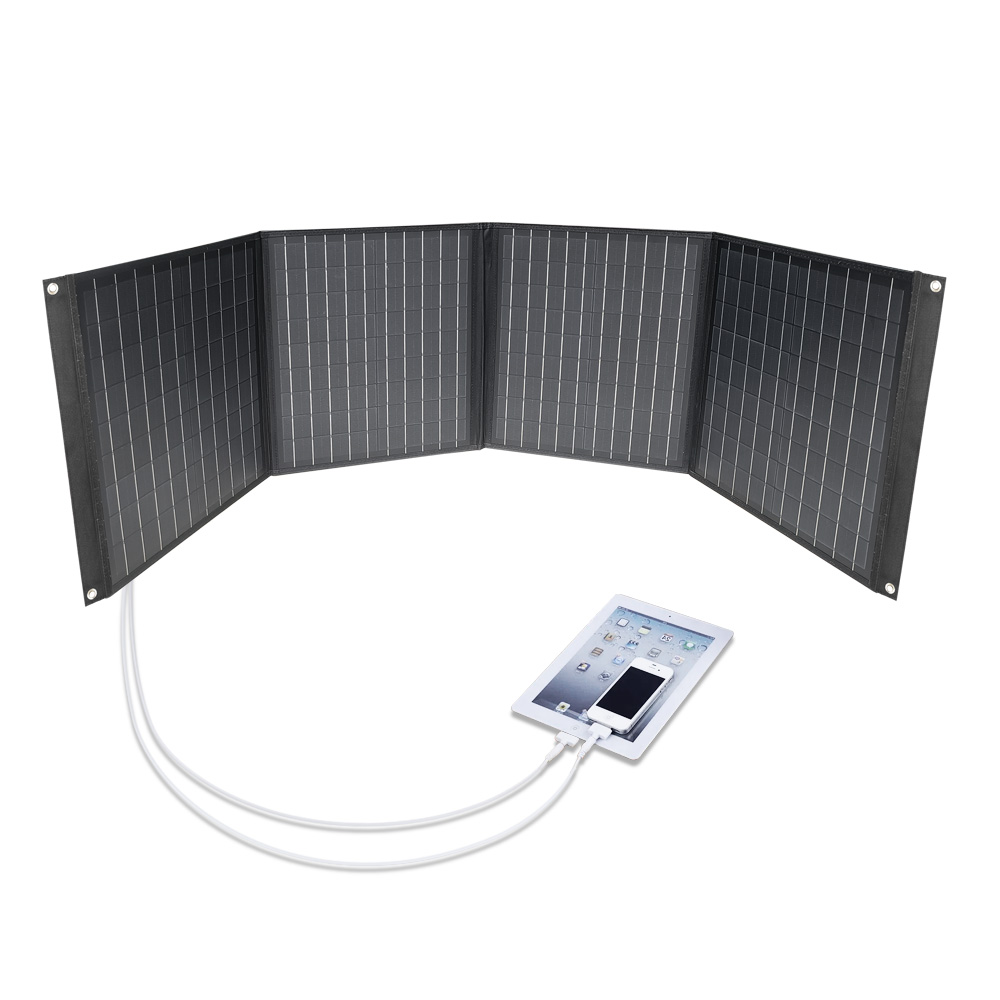

The wattage for a folding solar panel for camping.
Generally, for charging small devices like smartphones, cameras, and GPS units, a solar panel in the range of 10 to 20 watts can be sufficient. These panels are compact and portable, making them easy to carry and set up at your campsite.
However, if you plan to charge larger devices like laptops, tablets, or multiple devices simultaneously, you may want to consider a higher wattage panel in the range of 30 to 100 watts. These larger panels are more efficient at generating power and can handle a higher load.
Here are some guidelines to help you choose the right wattage:
-
10-20 Watts: Suitable for small electronic devices and maintaining power for essential communication and navigation.
-
30-50 Watts: Provides more power for charging multiple devices or slightly larger electronics.
-
60-100+ Watts: Ideal for camping setups with more power-hungry devices or if you plan to charge larger electronics like laptops or run small appliances.
Keep in mind that the amount of sunlight available and the time you have to charge your devices will also affect how quickly your solar panel can recharge them. Additionally, consider the weight and size of the solar panel, as you’ll need to transport it to your camping location. Choose a wattage that aligns with your camping needs and the devices you intend to use.
Here’s a rough guideline for solar cooking wattage:
-
Small Solar Oven: A small solar oven for baking or slow cooking may require around 100-200 watts. These are suitable for cooking smaller meals and can work well on sunny days.
-
Medium Solar Oven: A medium-sized solar oven designed for baking, roasting, and more extensive cooking may need 300-500 watts or more. These can handle larger meals and are more efficient.
-
Solar Grill or Stove: Solar grills or stoves designed for grilling or frying can require higher wattages, ranging from 500 watts to 1,000 watts or more. They are ideal for more intensive cooking tasks.
Additionally, solar cooking tends to be slower than traditional cooking methods, so you may need to plan your meals accordingly and allow more time for cooking.
Before purchasing a solar cooker, check its specifications and wattage requirements to ensure it aligns with your cooking needs and the conditions of your camping location.

